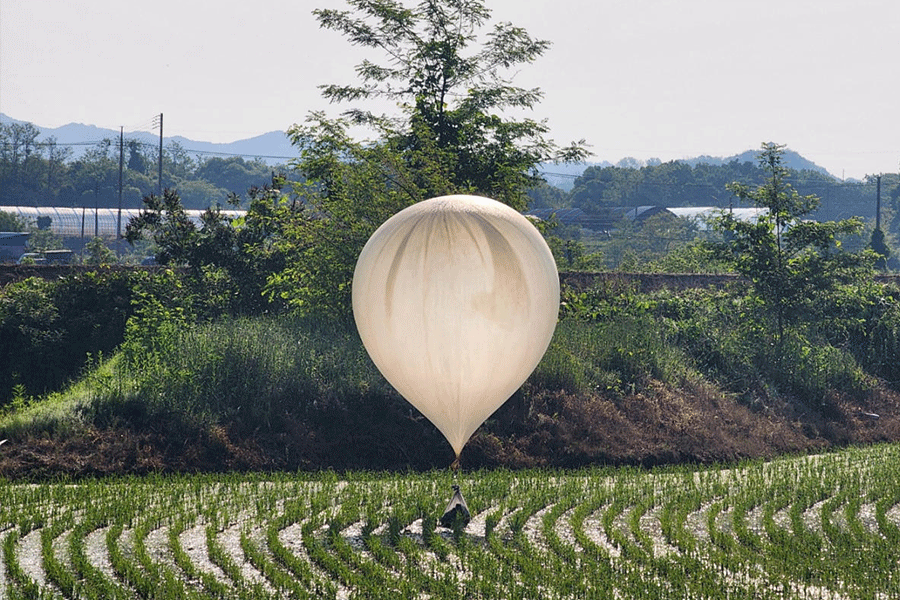South Korea accused North Korea on Wednesday of sending a large number of balloons across their heavily fortified border to drop objects including trash and excrement, calling the act base and dangerous.
The military's explosives ordnance unit and chemical and biological warfare response team were deployed to inspect and collect the objects, and an alert was issued warning residents to keep away and report any sightings to authorities.
By Wednesday afternoon, more than 260 balloons had been detected, and most of them have landed on the ground, the Joint Chiefs of Staff said.
Photographs released by the South Korean military showed inflated balloons with plastic bags tied to them. Other images appeared to show trash strewn around collapsed balloons, with the word "excrement" written on a bag in one photograph.
Yonhap news agency said some of the balloons contained animal faeces.
An official at Seoul's presidential office said the North might want to "test" the South's reaction but vowed to respond calmly.
"By putting rubbish and miscellaneous objects into balloons, they seem to want to test how our people would react and whether our government is indeed disrupted, and apart from direct provocations, how psychological warfare and small-scale complex threats would play out in our country," the official told reporters.
Balloons have regularly been sent the other way by South Korean activists, often led by North Korean defectors.
North Korea has reacted angrily to those balloons, which usually carry anti-Pyongyang leaflets, mini radios, food and USB memory sticks with K-pop music videos and dramas.
On Sunday, North Korea's vice defence minister denounced balloons sent by South Korean activists, calling them "dirty things" and a "dangerous provocation," and warned that "mounds of waste-paper and filth" would be sent to the South in response.
North Korea also attempted to jam GPS signals in South Korea on early Wednesday morning, although no damage was reported, the Donga Ilbo newspaper said, citing multiple unnamed government sources.
Seoul's defence ministry said it had no information to offer immediately.
A previous South Korean government has sought to block such campaigns, especially after a 2014 incident when the North tried to shoot down balloons, which triggered complaints from residents near the border.
A ban on balloon launches introduced in 2021 was later ruled unconstitutional by a top court, which said it violated freedom of speech.
The two Koreas' large militaries face off across the military border and North Korea routinely threatens to annihilate its neighbour.
Peter Ward, a research fellow at the Sejong Institute, said sending balloons was a far less risky than taking overt military action.
"These kinds of grey zone tactics are more difficult to counter and hold less risk of uncontrollable military escalation, even if they're horrid for the civilians who are ultimately targeted," he said.











